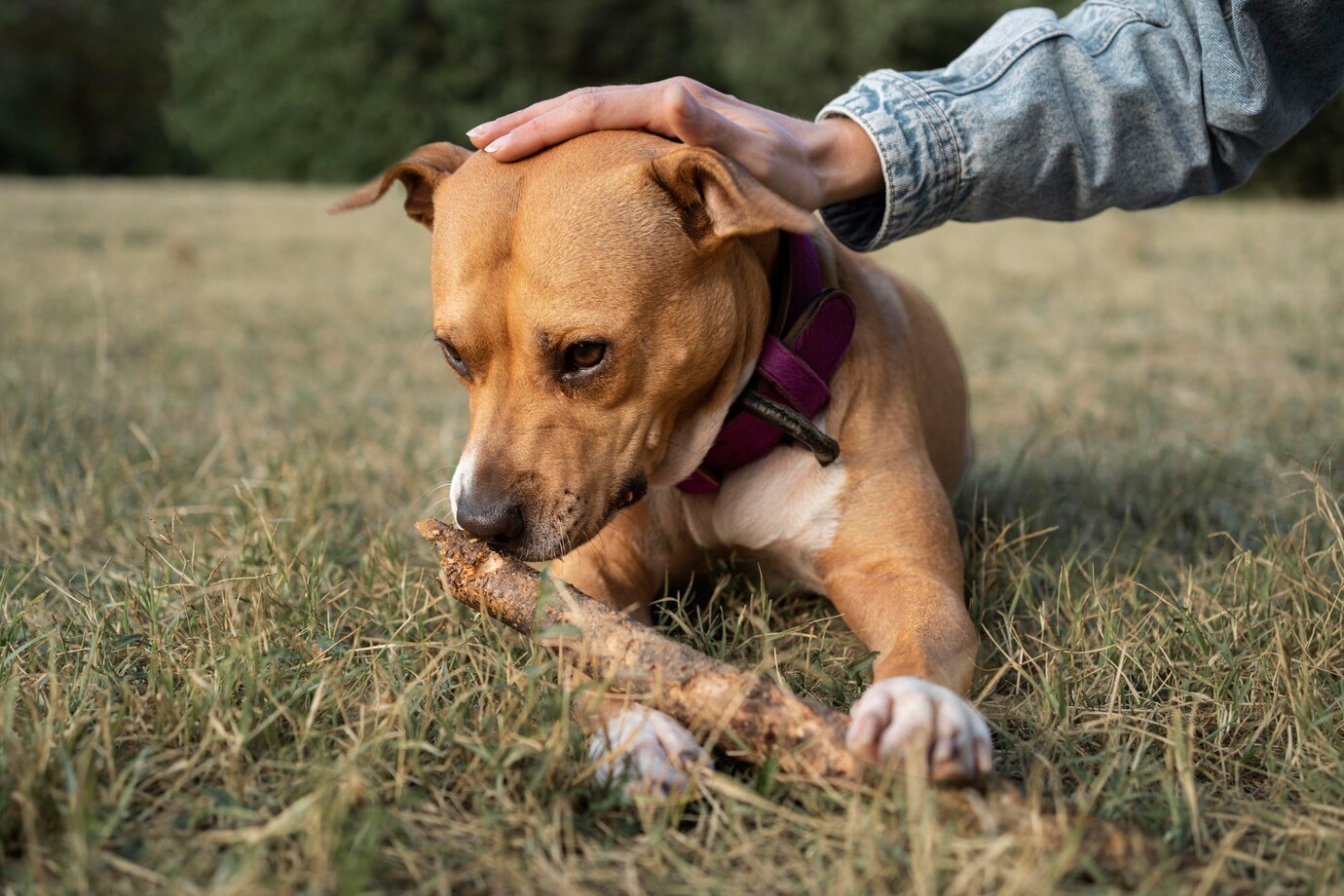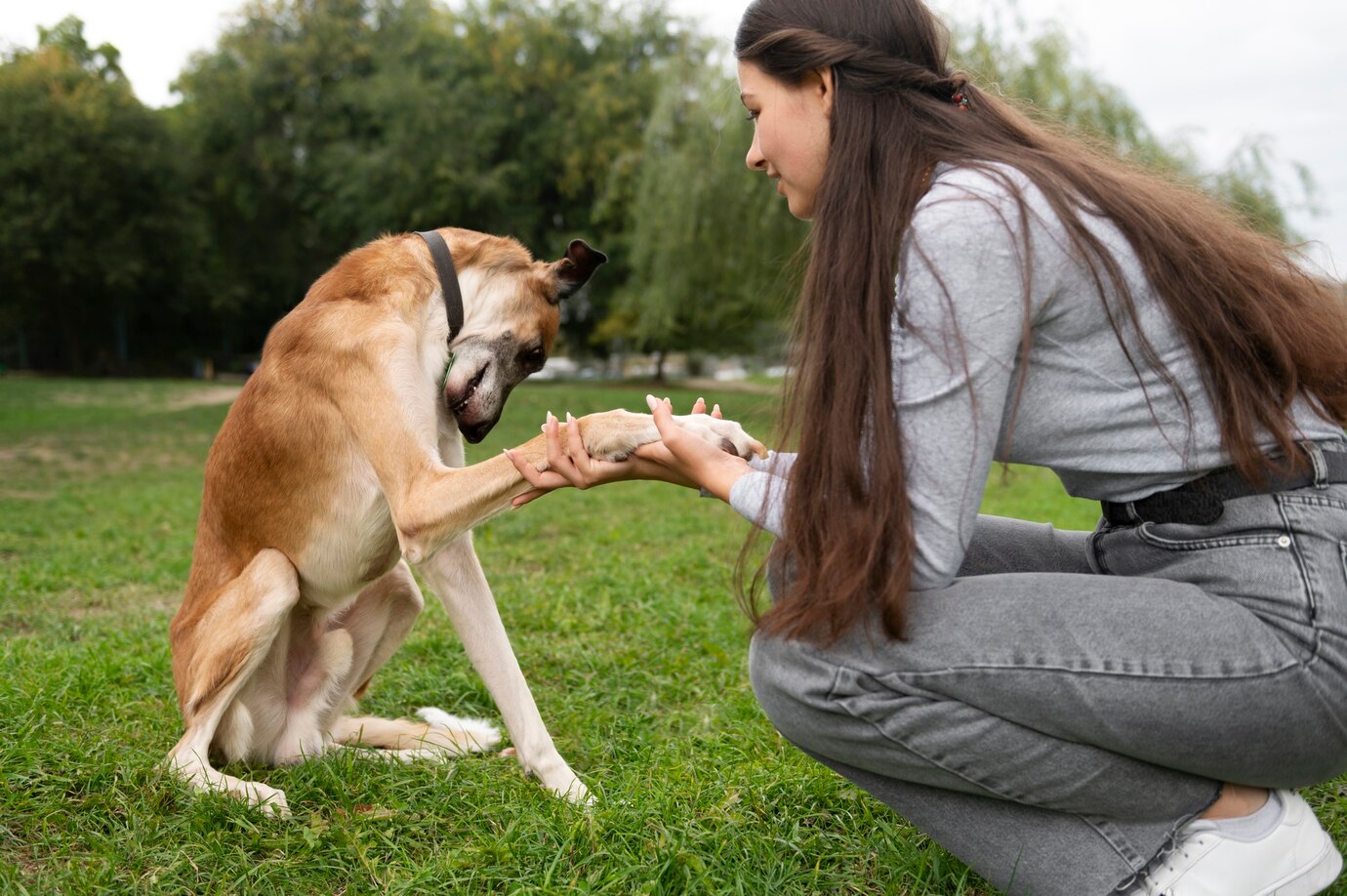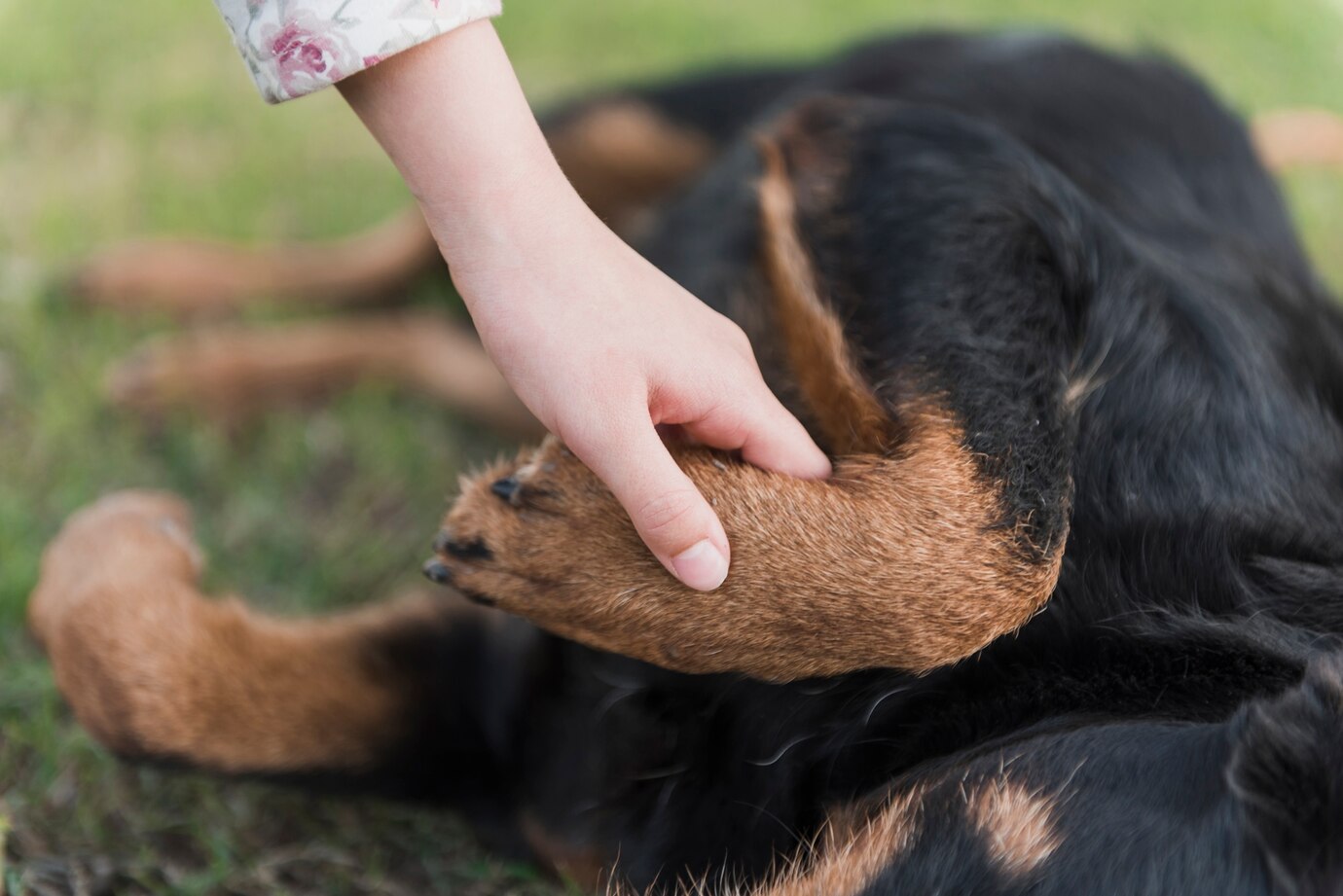Your dog might be biting his leg due to allergies or skin irritation. It could also be a sign of anxiety.
Dogs often bite their legs when they experience discomfort or stress. Allergies, both environmental and food-related, are common causes of itching. Parasites like fleas or mites can also lead to excessive biting. Anxiety or boredom might trigger such behavior, especially in active breeds that need more mental stimulation.
Identifying the root cause is essential for proper treatment. Observing your dog’s overall behavior and consulting a veterinarian can provide clarity. Keeping your dog healthy and happy involves understanding their needs and addressing any underlying issues promptly. Regular check-ups and maintaining a clean environment can prevent many problems.
Common Causes Of Leg Biting
Dogs often bite their legs due to allergies, anxiety, or skin infections. Persistent leg biting may also indicate parasites or injuries. Addressing the underlying cause is crucial for your pet’s well-being.
Allergies
Allergies can make dogs very itchy. They might bite their legs to stop the itch. Common allergens include pollen, dust, and certain foods. Identifying the allergen is crucial. A vet can help with this process. Allergy testing can pinpoint the exact cause. Once identified, treatment becomes easier. Special diets or medications can help. Regular baths also soothe the skin.
Parasites
 Parasites like fleas and ticks can cause severe itching. Dogs bite their legs to remove these pests. Flea bites are very irritating. Ticks can also cause serious health issues. Regular checks for these parasites are essential. Using flea and tick preventatives helps a lot. A vet can recommend the best products. Keeping your dog’s environment clean is also crucial.
Parasites like fleas and ticks can cause severe itching. Dogs bite their legs to remove these pests. Flea bites are very irritating. Ticks can also cause serious health issues. Regular checks for these parasites are essential. Using flea and tick preventatives helps a lot. A vet can recommend the best products. Keeping your dog’s environment clean is also crucial.
Behavioral Factors
Dogs can feel anxiety just like humans. Loud noises or new environments may cause stress. This stress can lead to leg biting. The dog might bite his leg to self-soothe. It is a way for them to feel calm. You should watch for other signs of anxiety. These may include whining or panting.
Dogs need mental and physical stimulation. Lack of toys or exercise can make them bored. A bored dog may start biting his leg. This can become a habit. Daily walks and playtime can help. Engage your dog with puzzles or interactive toys. This keeps their mind busy and reduces biting behavior.
Medical Conditions
Dogs may bite their legs due to allergies, parasites, or anxiety. Persistent leg biting often signals underlying health issues. Consulting a veterinarian ensures proper diagnosis and treatment.
Infections
Bacterial and fungal infections can cause a lot of itching. This itching can make your dog bite his leg. Fleas, ticks, and mites can also be a problem. These pests can irritate your dog’s skin. Yeast infections are another common issue. They often affect the paws and legs. Infections can be treated with medication. Always consult your vet for the best advice.
Arthritis
Arthritis can make your dog bite his leg to ease pain. This condition is common in older dogs. It affects the joints and can be very painful. Inflammation in the joints causes discomfort. Your dog might bite to soothe the pain. Pain relief and anti-inflammatory drugs can help. Your vet can suggest the best treatment.
Nutritional Deficiencies
Nutritional deficiencies might be the reason your dog is biting his leg. Ensuring a balanced diet can help alleviate this behavior. Regular vet check-ups are essential to address any underlying health issues.
Lack Of Vitamins
Dogs need vitamins to stay healthy. Without them, they can have itchy skin. This may cause your dog to bite his leg. Vitamins like B12 and E are very important. They help keep the skin in good shape. Make sure your dog gets enough of these vitamins.
Poor Diet
A poor diet can lead to nutritional deficiencies. Dogs need a balanced diet. This includes proteins, carbs, and fats. A diet lacking in these can cause skin problems. This can make your dog bite his leg. Always give your dog high-quality food. This helps in keeping him healthy and happy.
Environmental Triggers
Seasonal changes can affect your dog’s skin. Spring and summer bring allergies. Pollen and grass can cause itchiness. Winter can make the skin dry and flaky. Your dog might bite his leg to relieve the discomfort. It’s important to watch for these signs.
Household chemicals can irritate your dog’s skin. Cleaning products and pesticides are common culprits. Your dog might bite his leg if exposed. Always keep chemicals out of reach. Consider using pet-safe products. This can help prevent skin irritation.
Signs To Watch For
Dogs sometimes lick their legs a lot. This can be a problem. Excessive licking may cause sore spots. These spots can become infected. Watch your dog closely. See if the licking happens more at certain times.
Redness and swelling on your dog’s leg can be a sign. This may mean an allergy or irritation. Look for red patches on the skin. Swollen areas can be painful. Your dog may bite to relieve this pain.
Preventative Measures
Regular grooming helps keep your dog’s skin healthy. It can remove dead hair and dirt. Brushing your dog daily can prevent skin irritation. Also, check for fleas and ticks often. A clean dog is less likely to bite his leg.
A proper diet is crucial for your dog’s health. Make sure your dog eats high-quality food. This food should have all the necessary nutrients. Omega-3 fatty acids can help with skin health. Ask your vet for diet recommendations.
When To See A Vet
Dogs biting their legs may indicate allergies, parasites, or anxiety. Persistent biting warrants a vet visit to diagnose the issue. Early intervention ensures better health and comfort for your pet.
Persistent Symptoms
Persistent symptoms like redness, swelling, or bleeding need attention. If your dog licks the area often, that’s a bad sign. Another worry is if the leg biting lasts more than a few days. Do not ignore hair loss around the bitten area.  These signs suggest an underlying issue. Allergies or infections could be the cause. Sometimes, it might be a sign of pain. Keep an eye on these symptoms. A vet visit can help diagnose and treat the problem.
These signs suggest an underlying issue. Allergies or infections could be the cause. Sometimes, it might be a sign of pain. Keep an eye on these symptoms. A vet visit can help diagnose and treat the problem.
Unusual Behavior
Unusual behavior like increased aggression or anxiety is concerning. If your dog seems restless, pay attention. Changes in appetite might also be a clue. Watch for any limping or difficulty walking. These behaviors can signal discomfort. Sometimes, dogs bite their legs because of stress. If you notice these signs, consult a vet. Early intervention can prevent further issues.
Another Post: How to Dry Dog After A Bath
FAQ
Why Is My Dog Biting His Leg?
Dogs often bite their legs due to allergies, parasites, or anxiety.
How Can I Stop My Dog Biting?
Identify the cause, consult a vet, and provide appropriate treatment or distractions.
Is Leg Biting A Serious Problem?
It can lead to infections or underlying health issues. Always seek veterinary advice for persistent biting.
Conclusion
Understanding why your dog is biting his leg is crucial. It helps address any underlying health issues. Regular vet check-ups and attentive care can prevent this behavior. Always monitor your dog’s habits and seek professional advice if needed. A happy, healthy dog means a happier you.
Take action now for your pet’s well-being.

